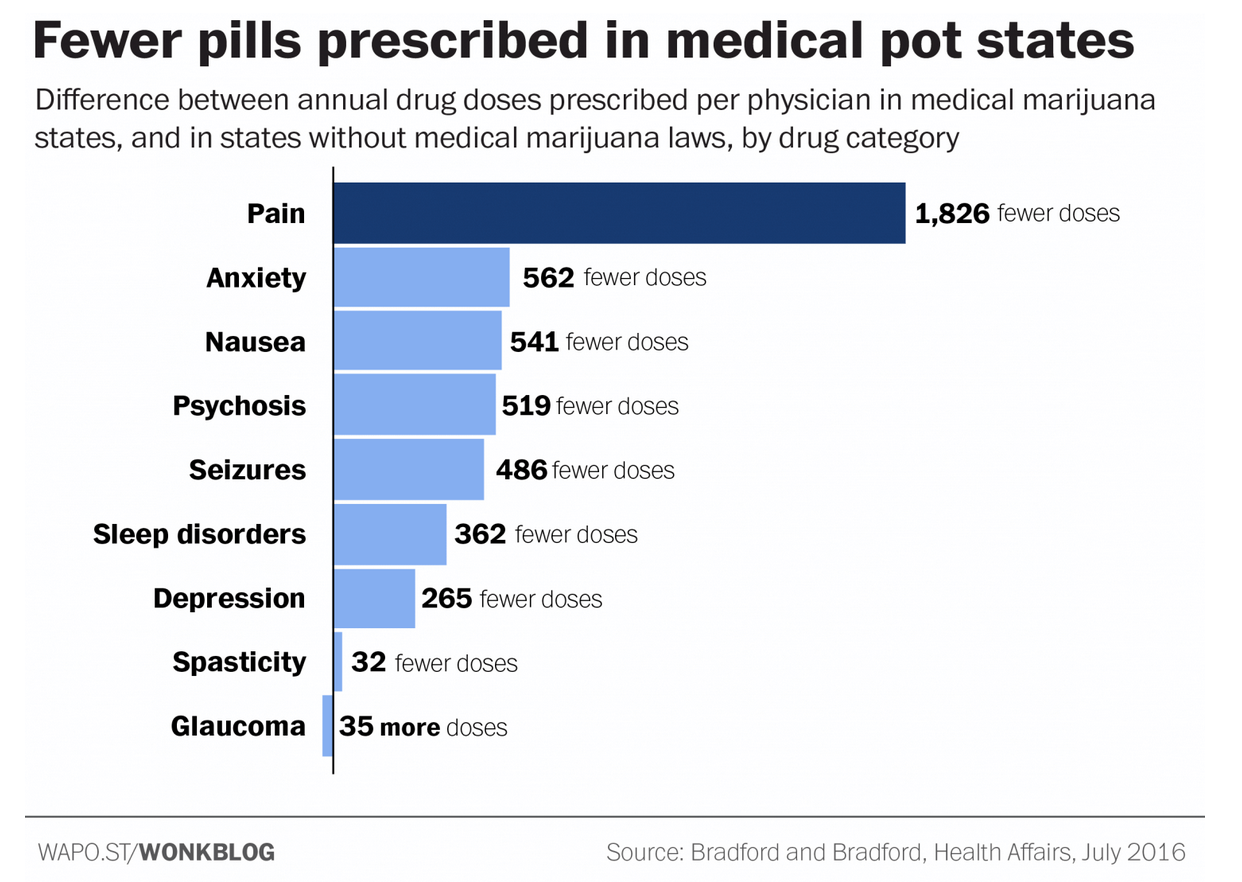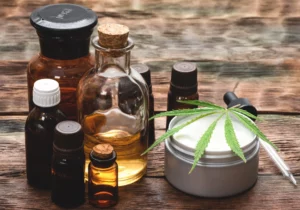A paper released by the National Bureau of Economic Research (NBER) has shown that state-sanctioned medical marijuana dispensaries have been linked to a decrease in painkiller abuse and opioid overdose-related deaths. The new paper by the NBER collected more extensive data than previous studies on the subject. The paper compared the number of admissions into substance abuse treatment programs and the number of opioid overdose-related deaths between states that do and don’t have medical marijuana. The NBER showed a 15–35% decrease in substance abuse treatment facility admissions in states with legal medical marijuana.
FOLLOW US ON FACEBOOK & INSTAGRAM
Fewer Opioid Deaths in States With Medical Cannabis
The NBER paper parallels a Journal of the American Medical Association (JAMA) study that shows a 24.8% decrease in deaths from opioids in states with medical marijuana. JAMA also reported that a survey of 79 studies found that chronic pain patients experienced a 30% or greater improvement in their pain while using cannabis in comparison to the use of a placebo. This information becomes increasingly important with more than 16,000 opioid overdose deaths in the United States in 2013 alone.
Medical marijuana already proved its prowess as a viable alternative for opioid painkillers because of its ability to quell pain and decrease the epidemic of opioid-related deaths. At HelloMD, we see an increasing trend in patients using cannabis on a regular basis rather than opioids, providing even more anecdotal evidence for the efficacy of medical marijuana to take the place of, or be used in conjunction with, standard pharmaceuticals.
Decreasing Opioid Prescriptions in Legal Cannabis States
The Journal of Health Affairs has released an even more compelling study out of the University of Georgia that outlines a direct correlation between the decrease of pharmaceutical use and the increase of cannabis use. In the 17 states where legalized medical marijuana was put in place by 2013, prescriptions written for painkillers and other medications decreased dramatically. The study found that the average doctor prescribed per year:
- 265 fewer doses of antidepressants.
- 486 fewer doses of seizure medications.
- 541 fewer doses of anti-anxiety medications.
- 1,826 fewer doses of opioid painkillers.
There were also significantly fewer doses written for prescriptions related to nausea, psychosis, sleep disorders and depression. To corroborate that the prescription decreases were tied to medical marijuana, the changes in prescription amounts for conditions that aren’t typically associated with medical marijuana use were also monitored. There was no change in the number of prescriptions of medications such as antibiotics, anti-viral drugs and blood thinners, showing the connection between increased marijuana use and the decrease in prescriptions for medications such as opioids and antidepressants.

Big Pharma Fights Back Against the Legalization of Marijuana
People are seeking out marijuana more and more for medicinal use, and pharmaceutical companies are taking notice. Big pharmaceutical companies lobbied the federal government to prevent legislation that may reschedule marijuana (it’s currently listed as a Schedule 1 drug, which means the government considers it to have no medical benefits) or provide an avenue to nationwide medical legalization.
Multiple companies jumped on the new interest in marijuana by formulating synthetic tetrahydrocannabinol (THC), which could have the same effects as THC derived from cannabis. At least one pharmaceutical company, after developing a synthetic THC product, wrote to the Drug Enforcement Administration (DEA) expressing its opposition to rescheduling cannabis due to the abuse potential of the plant and extensive growing effort needed to produce an adequate supply.
RELATED: OBAMA OPIOIDS SOLUTION MISSING CANNABIS
It’s not surprising that the pharmaceutical companies are fighting against medical marijuana legalization: $165 million were saved in the 17 medical marijuana states in 2013 due to the decreased number of traditional pharmaceutical prescriptions.
Lastly, the use of medicinal marijuana in legal states may create an estimated annual savings within Medicare of up to a half billion dollars if all 50 states were to allow for marijuana’s medicinal use. What’s clear is that Big Pharma will now do whatever it takes to prevent declassification of cannabis in the federal system and broader legalization.
If you’re new to cannabis and want to learn more, take a look at our Cannabis 101 post. HelloMD can help you get your medical marijuana recommendation; it’s easy, private and 100% online.
Photo by Pixabay






